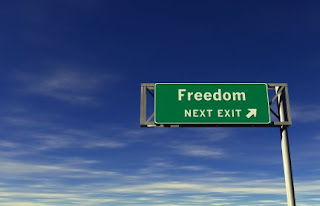 For some time I have been considering the climate and other desirable features of the higher latitude cities. In particular, I am interested in the southern latitudes. This should come as no surprise as I live in South Africa. The photo at the right here is Cape Point as seen from a stormy sea just south of it. I was lucky to be on a South African Navy Corvette when this photo was taken. It might seem calm enough, but those waves are 5m from top to bottom! Other photos are from south of Dunedin in New Zealand and obviously of the incredibly beautiful Table Mountain in Cape Town (With permission from Martin Wierzbicki).
For some time I have been considering the climate and other desirable features of the higher latitude cities. In particular, I am interested in the southern latitudes. This should come as no surprise as I live in South Africa. The photo at the right here is Cape Point as seen from a stormy sea just south of it. I was lucky to be on a South African Navy Corvette when this photo was taken. It might seem calm enough, but those waves are 5m from top to bottom! Other photos are from south of Dunedin in New Zealand and obviously of the incredibly beautiful Table Mountain in Cape Town (With permission from Martin Wierzbicki).Back to the topic of this piece; reading Jared Diamond’s interesting work “Guns, germs and steel: a short history of everybody for he last 13,000 years” I realised that the lands at higher latitudes and especially those with Mediterranean climates are rather special in that often the edible grasses came from those areas (especially in Eurasia). These grasses were domesticated early and proved critical to the development of civilisations. I guess the question then is why the tropics are almost as hostile as the arctic zones when it comes to food security for people, etc. Jared has several wonderful explanations in the book and it is well worth a read.
Still not satisfied I kept on looking and found this article at a NASA site. In “Location, location”, Rachel Hauser tells us that in 1990 about 35% of the world population lived on 1% of the ice-free land. We are also told that somehow the rate of economic growth of the poor nations are much lower than that of the rich nations and the link is made to the location of the fastest growing economies (despite the process of globalisation). Interesting enough, most of the poor countries are situated in the tropical regions of the world. Looking at climate zones and coastal proximity, it was found that only three tropical economies were classified as high-income (Hong Kong, Taiwan and Singapore). Every country zoned as temperate had either middle or high income economies and in countries (and economies) straddling both temperate and tropical climates (for example Brazil and Australia), it was found that wealth concentrated in the temperate zones.
The three key factors driving this situation were: coastal proximity, prevalence of infectious diseases and agricultural productivity. It is explained that tropical agricultural yields are low because the soils are more “fragile” than temperate soil, etc.
These things all make sense to me. I also find that I cope better with climates that are cooler and often less humid. I like “seasons”: very cold winters and mild summers. I work best when I can see how the days get longer or shorter and where dusk and dawn are long events. Some time ago I had to write a motivation for air conditioning of some old offices. I had a tough time explaining that most people find it hard to concentrate or work in an information type environment for a reasonable stretch of time when it was hot. I was told that because they were sitting quietly at their computers, they could easily stand temperatures up to 30C. I did not agree, and eventually the fight was won, and now I see people setting their conditioners to about 23C, and I see them actually working and not looking tired and res
 tless. The climate in the higher latitudes is such that one can easily regulate the temperature in the working environment via natural means. Anybody who has been to Hauser’s three successful tropical economies will also know that there the information worker environment is highly climate controlled. Is this possibly also a key to economic success? And if it as simple as that, why is it that the poor countries do not take this information to heart like Singapore did, for example? Any ideas?
tless. The climate in the higher latitudes is such that one can easily regulate the temperature in the working environment via natural means. Anybody who has been to Hauser’s three successful tropical economies will also know that there the information worker environment is highly climate controlled. Is this possibly also a key to economic success? And if it as simple as that, why is it that the poor countries do not take this information to heart like Singapore did, for example? Any ideas?


































